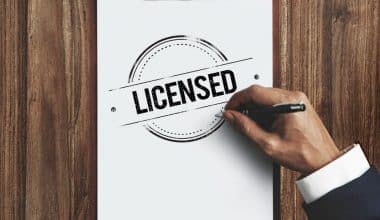What does and doesn’t landlord insurance cover when renting out a property? Read below to find out if landlord insurance covers tenant damage. This insurance goes beyond homeowners. If a house is destroyed and can’t be rented, owners can sue for loss of rental income.
What Is Landlord Insurance
Landlord insurance covers the house, fence, personal property, and liability. It also covers rental revenue losses. Comparisons of landlord and homeowner insurance reveal commonalities. However, a conventional house insurance policy won’t cover rental property damage or litigation against you. Expanded landlord insurance can cover theft, vandalism, additional construction costs to bring the building up to code, inflation adjustments, builder’s risk insurance, and workers’ compensation if you have employees who rent or maintain the property.
What Does Landlord Insurance Cover
While specifics vary by coverage, most landlord insurance protects against three main hazards.
#1. Loss of Property
In the event of a covered loss, such as a break-in or damage from a covered risk like fire, large hail, or high winds, landlord insurance can help cover the costs. Most policies also cover the landlord’s personal property, such as the washer and dryer, landscaping tools, and kitchen appliances that the landlord provides to the tenant.
#2. Risk Protection
If a tenant, guest, or vendor is wounded on the property, the landlord could be held liable, and personal injury litigation is a $38 billion industry in the United States. After the deductible is met, the liability coverage in a landlord’s insurance policy can assist in paying for the injured party’s medical bills, legal representation, and any settlement reached out of court.
#3. Financial Loss
A landlord’s insurance policy might also cover the loss of rent resulting from a tenant having to leave due to property damage. An insurance adjuster could request documentation of rental revenue. That’s one reason why many investors sign up for free rental property financial management software from Stessa. You may quickly balance your landlord’s bank accounts linked to Stessa on a monthly basis and at year’s end, and Stessa will automatically update and track your income and expenses.
Optional Landlord Insurance Riders
Property owners can customize landlord policies by adding riders or endorsements for additional coverage. If a landlord must evict a tenant for extensive repairs, an insurance provider may cover moving costs. Vandalism claims may not be covered unless a landlord’s insurance coverage has a rider. A landlord who owns a rental property in a high-crime area or who has a property vacant while it is being refurbished may find that especially significant.
Add-on Riders for Landlord Insurance Include:
#1. Burglary
Pays to replace landlord-owned kitchen appliances like a refrigerator or oven, washer and dryer, and landscape equipment like a lawn mower or snow blower in a rental property.
#2. Vandalism
A landlord’s insurance policy’s vandalism rider protects them if a property is broken into and vandalized with graffiti, sledgehammers, or cement-down plumbing lines.
#3. Codes for Buildings:
After major renovations, a city may force a landlord to bring the home “up to code” to fulfill construction regulations. Building codes have changed frequently since a property was built. If extensive renovations are done, landlords may have to upgrade electrical and plumbing systems.
#4. Unoccupied Home
If a rental property will be idle for more than 30 days, this coverage is available as an extra. To protect their investment during construction or renovation, landlords may choose to purchase a non-occupied housing endorsement.
#5. HVAC Reimbursement
In the event of a mechanical HVAC system failure, an optional rider reimburses a landlord for tenant payments. In some Sunbelt cities with searing summer temperatures, a licensed air conditioning contractor may take several days to visit a residence due to a backlog of emergency repairs.
What Does Landlord Insurance Not Cover
While landlord insurance can help mitigate many risks, it may not
#1. Failure of Machinery and Appliances
Typically, landlord insurance won’t pay to fix things like a broken water heater, furnace, or air conditioner. A house warranty for rental properties could be a good option for a landlord who would otherwise have to foot the bill for maintenance like this.
Landlord insurance is often only available for properties that are not residential in nature, so a homeowner who hacks by renting out extra space may not be able to get it. Before renting out a spare room, a homeowner should talk to their insurance company to see if any coverage enhancements are possible.
#3. Tenant Belongings
In most cases, a landlord’s insurance policy will not cover a tenant’s property if it loses its value as the result of an encasing natural catastrophe, such as a hail storm or a flood. If state landlord-tenant laws allow it, the landlord may require renters insurance as a condition of signing the lease. Renters insurance pays for repairs to the rental property and for temporary accommodation if the tenant must move out because of damage to their belongings.
Other Forms of Insurance for Rental Properties
Other insurance products and precautions that might be used to safeguard a rental property are:
#1. Coverage Against Earthquakes
FEMA reports that California, Missouri, and Washington are the top three states for earthquake risk. Landlords with rental properties in earthquake-prone areas may want to learn more about both traditional earthquake insurance and parametric insurance.
#2. Flood Coverage
Damage from floods is typically not covered by standard homeowner’s or landlord’s insurance policies. Heavy rainfall or rapid melting of snow can cause flooding even if a property is not in a designated flood zone. In addition to purchasing flood insurance, a landlord can help prevent flooding by having a sump pump installed in the basement, sloping the yard away from the house, and directing downspouts away from the structure.
#3. Personal Umbrella Policy
A personal umbrella policy may be a good idea for a landlord who owns several rental units. A personal umbrella policy may kick in to provide additional coverage, for instance, if the cost of restoring a severely damaged home exceeds the limitations of a primary policy.
#4. Form a Limited Liability Company
The formation of a limited liability company (LLC) for a rental property may provide greater protection for a landlord’s personal assets. As a result, the landlord’s risk often pertains to the assets held by the LLC, such as a single rental property, rather than the landlord’s whole business and personal assets in the event that a tenant or other individual brings a lawsuit against the landlord because of an accident that occurred on the property.
Does Landlord Insurance Not Cover Tenant Damage
Landlord insurance packages should always cover tenant damage. This coverage can help pay for the costs to repair or replace the landlord’s property following a loss. Landlord insurance, however, only covers certain types of damage.
To What Extent Do You Pay For Tenant Damage?
The property owner’s insurance policy should pay for a good portion of the little damage that tenants commit. Property insurance frequently covers losses caused by things like fires, explosions, and falling objects. Insurance will pay for repairs after a flood or a burst pipe. If a tenant accidentally starts a fire in the kitchen, for instance, landlord insurance coverage should pay for the repairs.
Similarly, if a renter does nothing to avoid frozen pipes during the winter, the landlord should pay for the repairs. Insured events are those that are specified in your insurance. You should be able to file a claim on your insurance if your tenant mistakenly causes a loss, provided that the cause of the loss is a covered danger.
Which Types of Tenant Damage Are Not Compensated For?
Landlord insurance doesn’t cover all tenant damage. Common wear and tear. Expect frequent use-related maintenance. After a tenant goes, the landlord cleans and sometimes replaces the carpet. Replace refrigerators, ovens, dishwashers, and others as they wear out, like humans. Standard property insurance excludes such losses. Landlord insurance rarely covers willful property destruction by tenants.
Anger against the landlord might lead to property destruction. Ex-tenants may damage windows, clog toilets, or punch holes in walls. Renters who damage rental property may not be covered by landlord’s insurance, but there are alternatives. The landlord’s insurance covers only his property. As the landlord, his insurance should cover renter-caused damage like a kitchen fire. The landlord does not insure tenants’ furniture. Purchase renter’s insurance to safeguard your property.
What Rights Does a Landlord Have if the Tenant Willfully Destroys the Rented Property?
The landlord may be able to recover costs if a renter knowingly damages the property, but their landlord’s insurance policy may not cover it. According to state law, the landlord will typically deduct repair expenses from the tenant’s security deposit. Repairs may surpass the security deposit. Landlords typically sue renters for any remaining damages.
Take thorough images of the damage regardless of what you do. Stopping the injury may require calling the police. If you aren’t evicting the tenant, malicious damage generally warrants it. Refer to your lease and state landlord-tenant laws to ensure compliance.
Why Is Renters Insurance Important for Landlords?
Landlords gain peace of mind and financial protection when renter insurance is a lease requirement. Renters insurance can help with moving costs; reliable tenants can show up; and pet owners have an easier time obtaining a rental.
What Are the Three Major Parts of a Renter’s Insurance Policy?
The three main parts of renters insurance are liability, personal property, and emergency expenses.
What Is the Cheapest Renters Insurance?
Overall, State Farm regularly delivers the best rates, averaging roughly $11 per month, which is around 15% cheaper than its peers. If you’re looking for affordable renters insurance, we recommend Lemonade despite its slightly higher average monthly costs (about $13) because of its superior digital experience and fast claims process.
Who Was the First Pet in America to Be Insured?
The first pet insurance coverage in the United States took effect in 1982, and it went to the famous television show Collie Lassie. NAPHIA’s State of the Industry Report 2023 Highlights reveals that Americans have put down about $3.2 billion in pet insurance premiums.
- BEST LANDLORD INSURANCE: Best Policy & Providers of
- RENTAL PROPERTY INSURANCE: Cost, Coverage & Best Options
- LANDLORD LIABILITY INSURANCE: What Is It & Why You Need It






